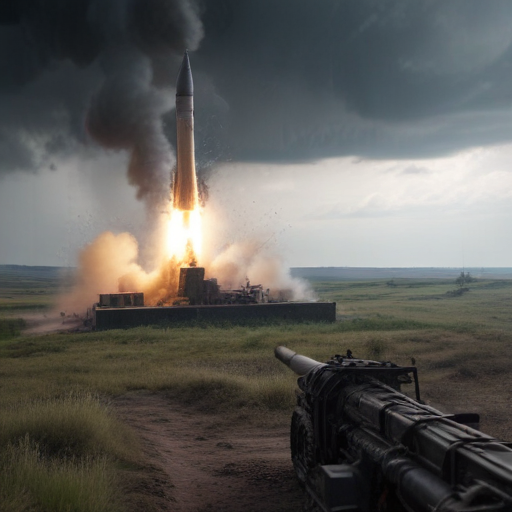In an alarming development, Russian President Vladimir Putin announced a new military escalation on Thursday, revealing that he has ordered an attack on Ukraine using a newly tested intermediate-range ballistic missile. This response comes after Ukraine initiated strikes on Russian territory using U.S. and British-supplied long-range weapons.
During a televised address, Putin described the missile strike as a demonstration of Russia’s advanced capabilities and asserted Russia’s right to retaliate against nations supplying arms to Ukraine. He emphasized that the creation of this missile, which can carry either conventional or nuclear warheads, marked a significant development in military strategy.
The U.S. Defense Department confirmed that this missile is an experimental variant based on the RS-26 Rubezh intercontinental ballistic missile design, raising concerns about its deployment in conflict. In a unique move, Russia communicated the timing of its missile launch to U.S. officials via nuclear risk reduction channels, indicating the seriousness of the escalation.
Analysts note that the use of an intermediate-range missile is intended to send a clear message to Ukraine, Washington, and NATO allies about Russia’s capability and willingness to strike far beyond Ukrainian borders. Despite this, U.S. officials maintain a stance of support for Ukraine, asserting that Russia’s attempts to intimidate the nation will not succeed.
Recent developments also saw Ukrainian forces successfully utilize long-range missiles to strike targets within Russia, an act that prompted strong reactions from the Kremlin, including the revision of Russia’s nuclear doctrine to expand scenarios in which Putin could justify deploying nuclear weapons.
While the risk of an actual nuclear escalation remains low, experts caution against underestimating the potential for further conflict. However, they believe the current military momentum is in favor of Russia, as evident from their recent territorial gains and support from external allies.
Despite the somber tone of the situation, there is hope in the resilience of Ukraine and the continued military support it receives from Western nations. This solidarity not only reinforces Ukraine’s defenses but also sends a strong message of unity against aggression. The conclusion drawn by strategic analysts is that while rhetoric may intensify, the realities on the ground indicate little immediate benefit for Russia in escalating to the nuclear level.
Overall, the situation remains tenuous, yet the diplomatic and military engagement by Ukraine and its allies continues to play a crucial role in countering Russian advances.
